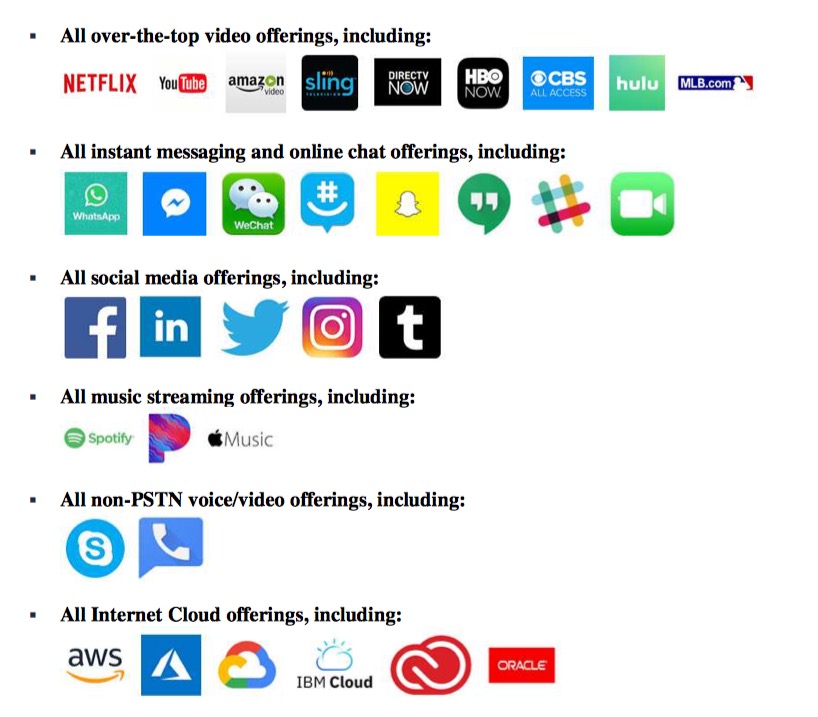Having succeeded in killing federal net neutrality rules, broadband lobby groups are now asking the Federal Trade Commission (FTC) to avoid imposing stricter regulations on the industry.
Federal Communications Commission Chairman Ajit Pai claimed that his net neutrality repeal won't hurt consumers because the FTC will fill the gap left by the FCC's deregulation of broadband. But as things stand today, the FTC can only punish ISPs if they make net neutrality promises and then fail to keep them—ISPs could avoid FTC punishment simply by not making net neutrality promises.
ISPs want to keep it that way. In comments filed this week, cable industry lobby group NCTA told the FTC that "there is plainly no reasonable basis in today's marketplace for singling out ISPs for unique regulatory burdens." The FTC should let "market forces" prevent bad behavior and avoid specific net neutrality or privacy regulation for the broadband industry, the lobby group said.
The FTC should also try to preempt state and local rules, the lobby group argued.
The comments were filed in an FTC proceeding titled "Competition and Consumer Protection in the 21st Century." The FTC is planning to hold hearings on the communications industry, the FTC's enforcement processes, and other competition and consumer protection topics.
"The FTC should ensure that the Internet is subject to uniform, consistent federal regulations, including by issuing guidance explicitly setting forth that inconsistent state and local requirements are preempted," the NCTA wrote.
The FCC is already trying to preempt state net neutrality laws at the urging of industry groups, and courts might ultimately have to decide whether federal agencies can preempt such rules.
"The FTC should endorse and reinforce the FCC's ruling by issuing guidance to state attorneys general and consumer protection authorities reaffirming that they are bound by FCC and FTC precedent in this arena," NCTA argued.
NCTA's filing focused mostly on potential privacy regulation, saying that the FCC should continue its "technology-neutral approach to privacy and data security." Net neutrality concerns are best addressed by existing antitrust laws, the filing said. (For more background on FTC enforcement, see our previous story, "'Unenforceable:' How voluntary net neutrality lets ISPs call the shots."
NCTA points to competition from DSL, mobile
ISPs claim they face so much competition that market forces will prevent bad behavior. Cable TV faces competition from online video services like Netflix, YouTube, and Amazon, NCTA noted. But notably, the NCTA filing includes a graphic listing "competitors" that doesn't include any broadband providers:

That's because cable companies face little serious competition for providing home Internet service. The top cable companies such as Comcast and Charter rarely compete against each other, and they have far more Internet customers than DSL and fiber providers.
Comcast is the only choice for 30 million Americans when it comes to broadband speeds of at least 25Mbps downstream and 3Mbps upstream, and Charter is the only choice for 38 million Americans, a recent study based on FCC data found.
NCTA still tried to argue that cable companies face significant broadband competition, pointing to a 2014 survey that found 17.6 percent of consumers had switched broadband providers in the previous 12 months. However, that Comcast-commissioned study (see Exhibit 1 in this Comcast filing) included DSL services (which are much slower than cable) and mobile broadband services (which have stricter data limitations and less reliability than cable). The survey also excluded respondents who did not confirm having access to wireless broadband.
The NCTA also pointed to FCC data that shows "98 percent of developed census blocks had at least two providers offering broadband service capable of delivering download speeds of 10Mbps or greater and upload speeds of 1Mbps or greater and that 82 percent had at least three such providers."
But the FCC has been using a higher 25Mbps/3Mbps threshold to measure broadband deployment progress since 2015. By focusing instead on the 10Mbps/1Mbps threshold, the NCTA is portraying slower DSL networks as formidable competitors to cable.
NTCA argued that ISPs are less of a threat to Internet users than large Internet platform providers such as Amazon, Apple, Facebook, Google, and Netflix.
"[R]ecent experience suggests that large Internet platform providers pose a greater risk to Internet openness and consumer privacy than ISPs," NCTA wrote. "Any such risks can best be addressed through a combination of market forces and an evenhanded application of the FTC's well-established authority to pursue case-by-case enforcement where necessary to prevent deceptive or unfair business practices or anticompetitive conduct."
AT&T/Verizon lobby says the same
The FTC also heard from USTelecom, which represents telcos such as AT&T, Verizon, CenturyLink, and Frontier. USTelecom's filing said:
Broadband Internet access provider industry practices—namely, innovation and infrastructure investment—coupled with light-touch regulation have brought about the increased competition and availability of services Americans now enjoy. For more than a decade, we have seen steady, measurable changes in the broadband market in terms of speed, availability, and access.
Like NCTA, USTelecom said that mobile services should be considered competitors to wired broadband because mobile "is widely used and in many cases can achieve speeds comparable to some fixed offerings."
In order to keep the broadband market "vibrant and competitive," USTelecom said that "America's world-leading Internet growth [should] not be stifled by unnecessary and overly burdensome regulation."
Despite this free market argument, USTelecom also recently argued that broadband providers are like utilities and should therefore be subsidized by the government. In short, ISPs play up the supposedly competitive nature of broadband when they're trying to avoid consumer protection regulations and stress the failures of the US broadband market when they ask the government to subsidize their network construction.
Disclosure: The Advance/Newhouse Partnership, which owns 13 percent of Charter, is part of Advance Publications. Advance Publications owns Condé Nast, which owns Ars Technica.
[contf] [contfnew] 
Ars Technica
[contfnewc] [contfnewc]







